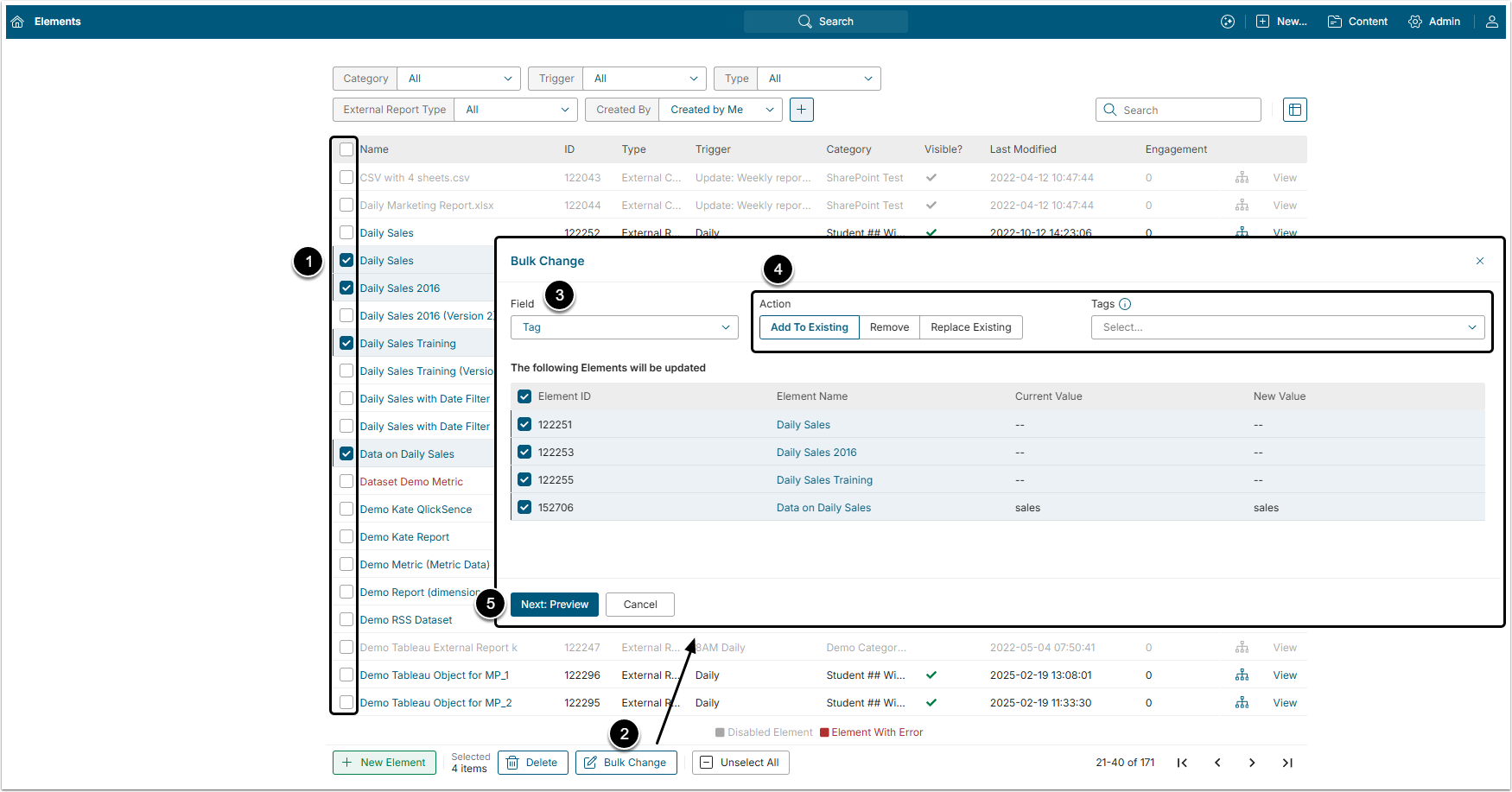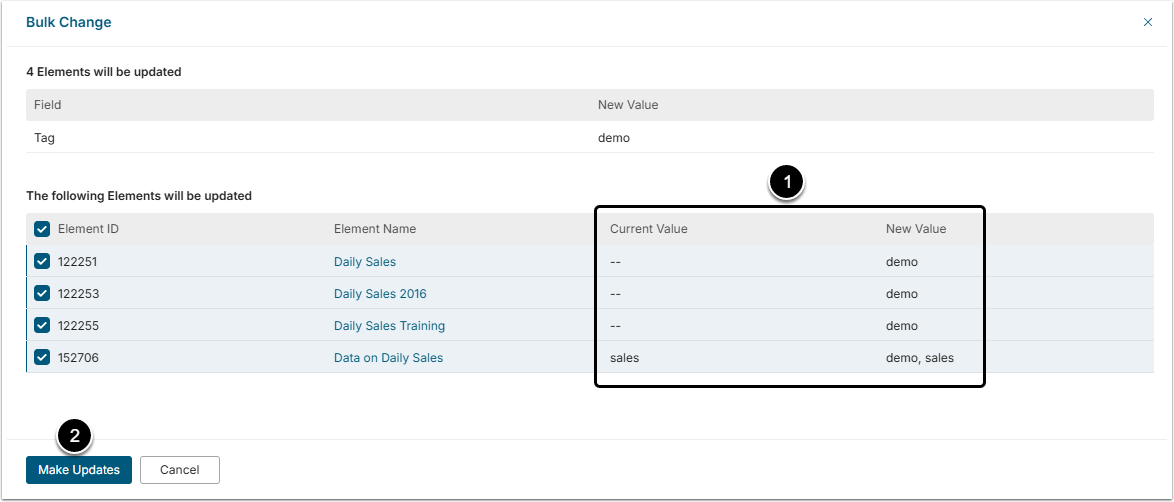Instead of updating Elements individually, the Bulk Change feature allows Administrators to save time by applying the same change to a specific field across multiple selected Elements at once.
Bulk change feature is available:
- For all system Elements: Metrics, Reports, External Reports, or External Content;
- In Dataset and Data Source lists.
NOTE: Power Users can perform Bulk Changes on those Elements to which they have Edit access. The Fields available to Change are restricted by the Security Model. See Bulk Change Security for details.
1. Open Elements List
Access Content > Elements
- Check the boxes for the Elements you want to change.
- Click [Bulk change] to open Bulk Change window.
- Field: Select the field that should be changed for all Elements.
- Define what change to make. There are different options depending on the selected Field.
- [Next: Preview]
NOTE: Datasets and Data Sources can also be bulk changed from the respective List Pages.
2. Preview and Confirm Changes
- Preview the changes to be applied in the Current Value and New Value columns. At this point you can still exclude unnecessary rows by clearing their check-boxes.
- [Make Updates]
Using the Bulk Change button when one or more Elements are selected, a Power User can change the settings of Elements to which User has Edit Access as follows:
- Change the existing Category of Elements if the PU:
- With the Privilege to use Categories with only View Access, selects Categories to which the PU has View or Edit Access;
- Without this Privilege, selects only Categories to which the PU has Edit Access.
- Change the existing Data Collection Trigger to one of those to which the Power User has at least Use Access.

